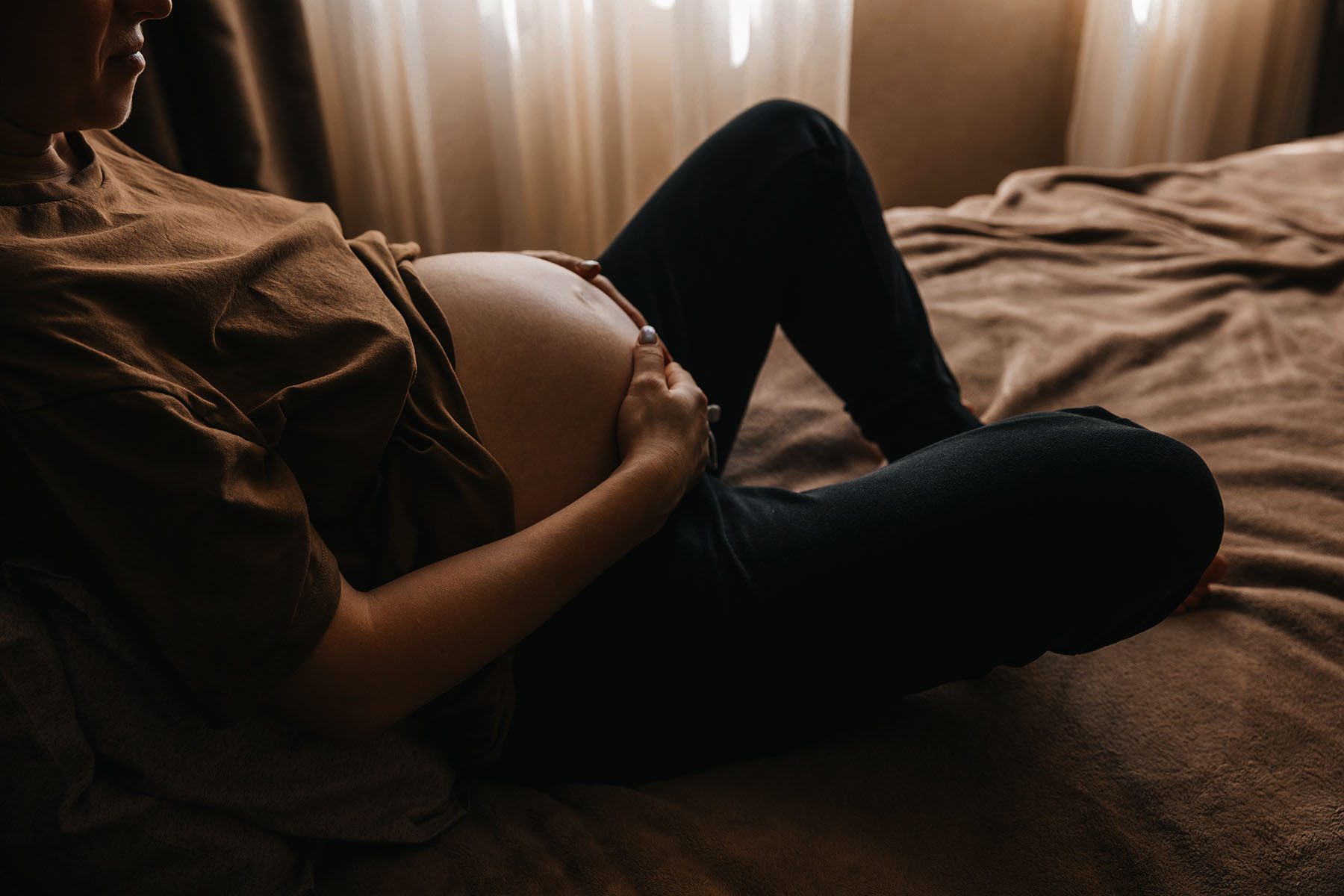Expanding Medicaid and telehealth, investing in community-based care services, and providing paid leave and child care will all help address negative mental health outcomes for pregnant people and new parents, according to a new research paper.
This paper, published in the policy journal Health Affairs this week, is part of a broader push to study and address pregnancy-related mental health challenges in a holistic and systemic way. The risks for anxiety, depression, insomnia and other mental health struggles can increase during and after pregnancy, and many patients have trouble seeking help, or recognizing that they need it.
“The concept of mental health has been evolving and expanding in recognition that it’s not just about disease and condition,” said Jennifer E. Moore, a co-author of the paper and founding executive director of the Institute for Medicaid Innovation, a research and policy nonprofit. “It’s also about overall health and well-being and having access to those resources that may prevent mental health [challenges], may mitigate or help with managing mental health.”
Moore and her three co-authors focus on six ways they say policy would better support people during and after pregnancy. These moves would help prevent potentially harmful mental health conditions, in addition to properly treating them, they said.
Medicaid funds cover about 45 percent of births in the United States, yet many recipients find that they have limited coverage of wellness and preventive services, as well as difficulty finding clinicians who accept Medicaid payment rates, the researchers wrote. Currently, pregnancy-related Medicaid coverage lasts up to 60 days after birth. The authors recommend extending that coverage through at least 12 months with comprehensive perinatal care to ensure access to adequate physical and mental health services.
The experts also highlight the importance of co-locating health services, meaning allowing patients to receive different services in one location.
“For a lot of individuals, they can go in for their prenatal appointment; they have to go somewhere else to get their lab work done; and then they’ve got to go somewhere else for their ultrasound,” Moore said. “Those are three separate appointments that are not in the same location, and that is a challenge.”
Co-location of services for postpartum care covered by Medicaid requires a redesign of how services are currently reimbursed, the authors said. Allowing parents and infants to enroll in the same Medicaid health plan would reduce one barrier to co-located services, for example.
Funding — from government or otherwise — for different types of parental care, such as providing access to home visits or access to doulas, would also provide mental health support for people, particularly groups that may not have the ability to pay for such services out of pocket.
This could especially benefit women of color and low-income women, who are several times more likely to suffer from postpartum depression, yet less likely to receive treatment. Doulas who work with Black pregnant people and low-income pregnant people have been shown to help “mitigate the negative effects of social determinants of health, specifically racism and classism” according to a study from Health Equity.
Another policy recommendation the authors of the latest paper discuss is expanding telehealth. During the COVID-19 pandemic, the federal government relaxed regulatory hurdles for telehealth services. Taking steps to make this more permanent would improve the convenience of obtaining health care, the researchers state. This is best accompanied by efforts to address disparities in tech and broadband access, they say.
Additionally, strengthening government research, tracking and data collection would allow medical experts and policymakers to better understand the prevalence of certain mental health conditions and disparities between certain groups.
“What we measure drives what we do,” said Kara Zivin, a co-author of the paper and professor of psychiatry, obstetrics and gynecology at the University of Michigan. “If we don’t measure how many people are actually getting screened, or followed up, or treated, or if we don’t even know what’s happening, then it’s a lot harder to do something about it.”
I think you can’t disconnect the mental health issues from the broader issues that parents face.
Kara Zivin, a co-author of the paper and professor of psychiatry, obstetrics and gynecology at the University of Michigan
Lastly, the paper discusses broader support for families and new parents. Limited ability to take paid leave following the birth of a child and high child care expenses contribute to decreased mental well-being for parents, the experts wrote.
“Many people feel forced to return to work in the immediate postpartum period, which is a critical time to support the physical and mental health of the postpartum person as well as for breast-feeding, bonding and attachment, adjustments to the demands of parenthood, and development of caregiving skills,” according to the paper.
When it comes to child care, moms with children ages 12 and under spent about eight hours a day on direct or indirect child care last year, while simultaneously working an average of six hours on weekdays, according to data released by the Bureau of Labor Statistics and analyzed by the Brookings Institution. Last year, an estimated 700,000 parents with young kids left the workforce due to pandemic-related child care challenges.
“Pregnant people have borne the brunt of the economic challenges in the pandemic. We have a caring economy, and yet we don’t pay people like that’s important,” said Monica McLemore, a co-author of the research and associate professor in the Family Health Care Nursing Department at the University of California, San Francisco. “Whether it’s child care, or schools, or when we’re thinking about new parents, we don’t support them in the ways that I think we could if we had a more robust social safety net.”
Thinking about support systems that people do not typically associate with mental health conditions is important, the researchers said. A number of state and federal lawmakers have introduced or passed policies that consider holistic approaches to supporting pregnant people and parents in ways that could help prevent the mental health concerns raised by the authors.
President Joe Biden’s proposed American Families Plan included historic investments in the child care industry, the country’s first universal paid family and medical leave program, and its first universal preschool program. Parts of this proposal are incorporated into the Build Back Better reconciliation bill Democrats are currently pushing for in Congress, though it’s unclear what any final package might look like and how much it will cost.
Democrats have also introduced the Black Maternal Health Momnibus Act of 2021, championed by Rep. Lauren Underwood, which includes 12 separate bills aimed at addressing health disparities. Though the legislation is still being considered in Congress, a number of states have introduced similar bills. This week California Gov. Gavin Newsom, a Democrat, signed a state Momnibus Act.
These proposed investments go to address issues that all affect mental health for parents, Zivin said. “I think you can’t disconnect the mental health issues from the broader issues that parents face,” she said. “These things clearly go together and COVID has exacerbated the need.”








